
Good morning! Korean lessons, Korean language learning, Korean words
Standard "good morning" in Korean. One way to say "Good morning" in Korean is 좋은아침이에요 (joeunachimieyo). This is the standard way of speaking and is thus appropriate to use in most situations, except when a higher degree of formality is expected. Its literal translation is, "The morning is good."
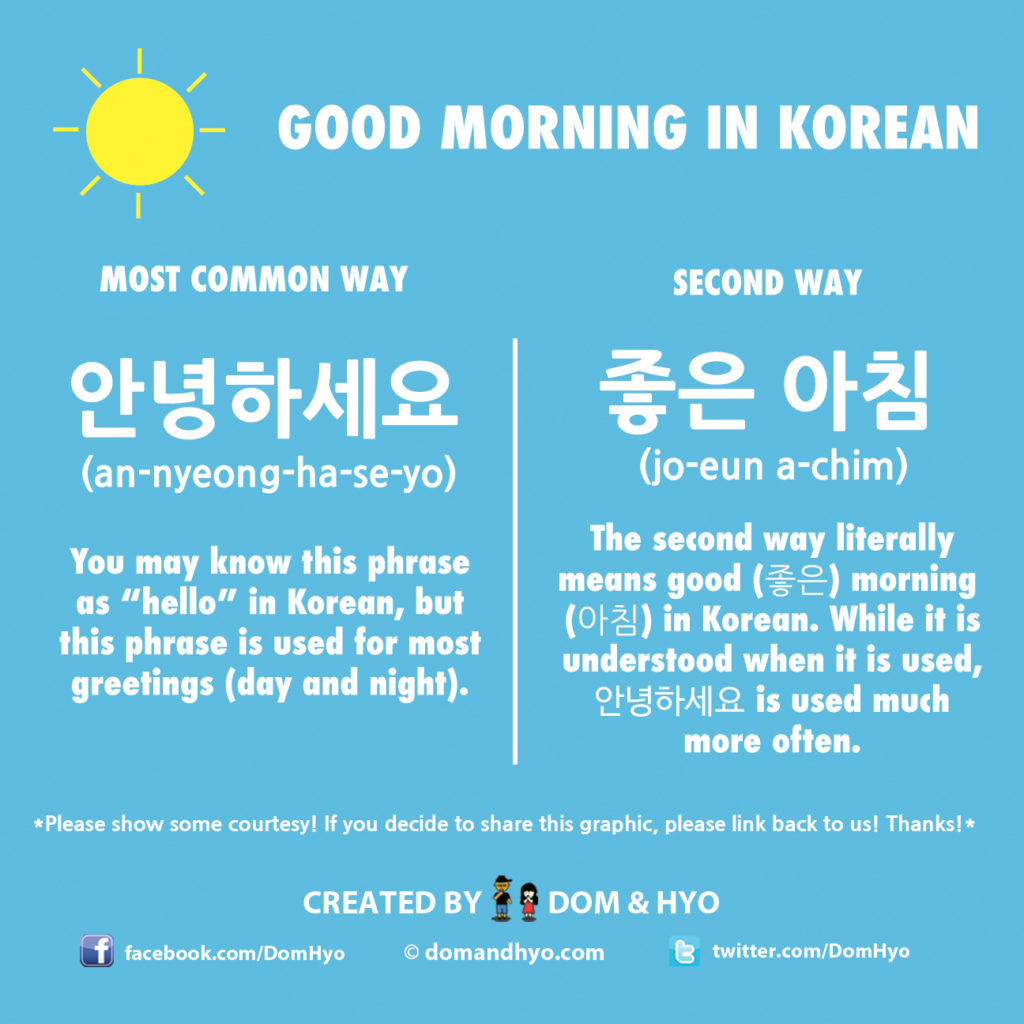
How to Say Good Morning in Korean Learn Korean with Fun & Colorful
Here's a list of some common ways to say good morning in Korean to help you start your day off right! Contents 1. Formal: 안녕하세요 (ahn-nyung-ha-se-yo) 2. Formal: 잘 잤어요? (jal jat-ssuh-yo) 3. Formal: 좋은 아침이에요 (joh-eun ah-chi-mee-eh-yo) 4. Informal: 안녕 (ahn-nyung) 5. Informal: 잘 잤어? (jal jat-ssuh) 6. Informal: 좋은 아침 (joh-eun ah-chim) 7.

[Learn Korean! One A Day!] How to say “Good morning!” in Korean? YouTube
좋은 아침이에요" is a direct translation of "good morning" but it's not commonly used. To say "good morning in Korean", you often say "안녕하세요" (hello). Informally, you can ask friends "잘 잤어?" (did you sleep well?). For elders, use "잘 주무셨어요?" or "안녕히 주무셨어요?" meaning " Did you sleep well?". "

How to Say GOOD MORNING in Korean 90 Day Korean YouTube
"Good morning": 좋은아침이에요 ( joeun achimieyo) "Long time no see" (polite): 오랜만이에요 ( oraenmanieyo) "Nice to meet you" (formal): 만나서 반갑습니다 ( mannaseo bangapseumnida) "What's up?": 무슨 일이야? ( museun ir-iya?) "How are you?": 어떻게 지내세요? ( eotteoke jinaeseyo?) "Did you eat?": 밥 먹었어? ( bab meogeoss-eo?) "Yo!": 야! ( Ya!)

Learning Korean // greetings // Good Morning Korean words learning
How to Say Good Morning in Korean. Here is how to say good morning in Korean: 좋은 아침 [jo-eun a-chim] Usually when we talk to our friends, we use the informal version of the good morning, which is 좋은 아침, but when we say good morning to other people we do not know that well, we like to add 입니다 at the end, making it formal.
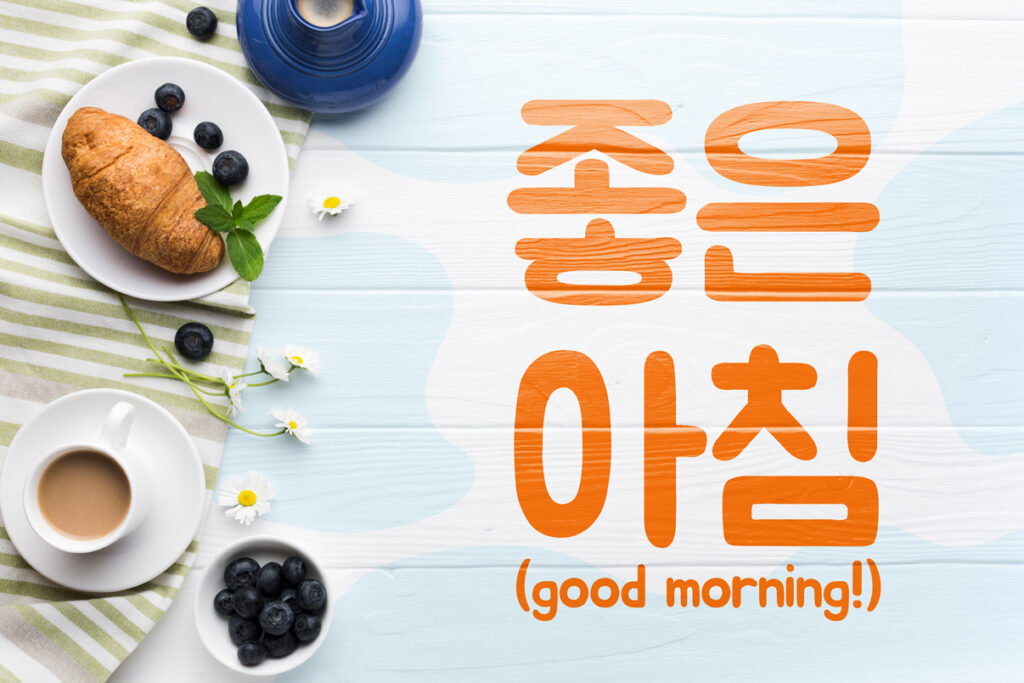
How to Say Good Morning in Korean 7 Ways to Start Your Day Courteously
Let's start with the morning routine in Korean: Afternoon and evening routines: Sentence structure and examples Now let's look at how to use the vocabulary you've just learned. In English, the sentence structure to say you are going to do something is: I am going to______. In Korean it is a bit different, it works like this: ______ -거예요 (geo-yeyo).

How To Say Good Morning In Koreanlearn Korean Phrases (2023)
1. 안녕하세요 Hello (formal) Pronunciation: An-nyeong-ha-se-yo This is one of the most important Korean greetings you should know. When you learn this greeting, it's already enough for them to say "Oh! You speak Korean well!", haha!

Good Morning In Korean 3+ Easy Ways To Say It
Different ways to say "Good Morning" in Korean You can use " hello " instead of saying "good morning" when speaking Korean in most situations. However, if you want to specifically say "good morning" instead of "hello," then you'll want to know these phrases. Formal "Good Morning" in Korean

Good Morning in Korean Learn Korean With Beeline YouTube
Technically, 'good morning' literally translates to joheun achim (좋은 아침), where 'joh-eun' (좋은) means 'good' and 'a-chim' (아침) represents the Korean word for 'morning.' If you search around the web, or if you use an online translator, you might stumble upon this phrase every now and then.

Good Morning In Korean Language soakploaty
Learning common Korean greetings, like hello, hi, or good morning in the local language will help you make a good impression on your trip to South Korea! Visiting a new country and don't know the local language there! How will you start a conversation with any person you meet? All these apprehensions are overwhelming and quite reasonable.
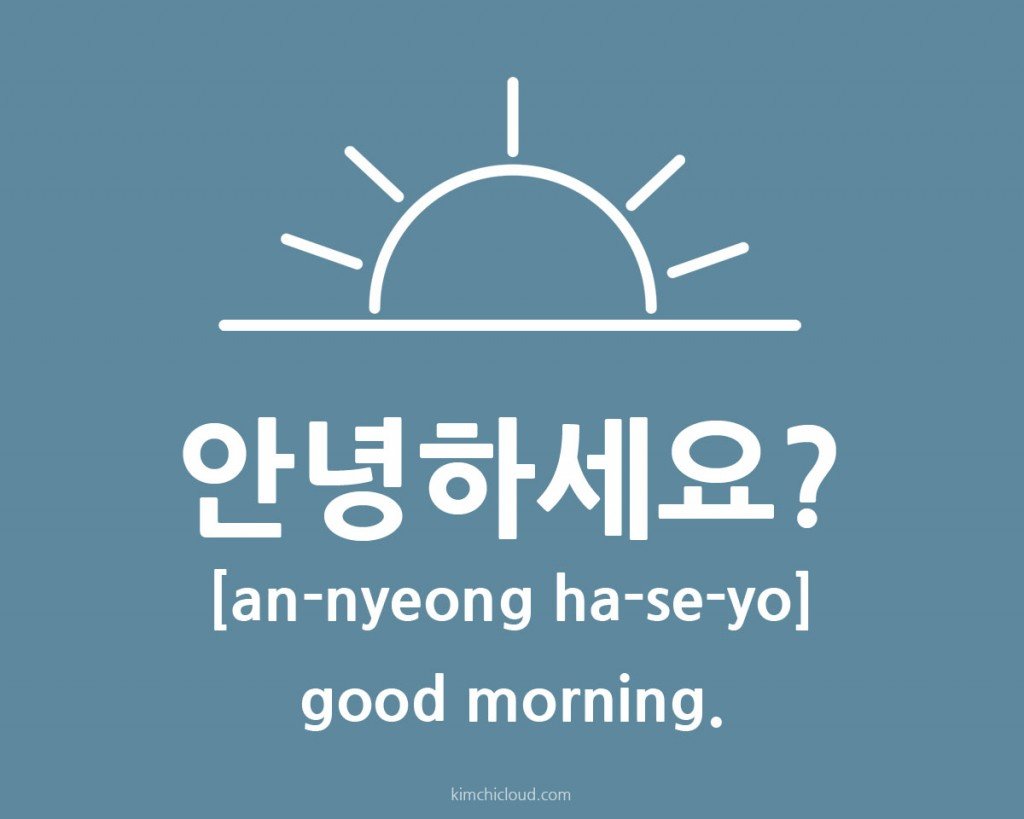
안녕하세요? How To Say Good Morning in Korean Kimchi Cloud
2022-11-29 Korean Korean Learning how to say good morning in Korean is an integral part of Korean culture and etiquette, especially in South Korea. It is an effortless way to greet that is easy to do, nice, polite, friendly and always a good way to start the day on a positive note.

Good morning(joheun achim) Korean Words Learning, Korean Language
The road to fluency begins with understanding Hangul, the phonetic alphabet of Korea. Recognizing these symbols is a fundamental step, especially in terms of pronunciation. Moving forward from this, it's time to uncover the usual greetings, specifically focusing on the ways to articulate 'good morning' in the Korean language.
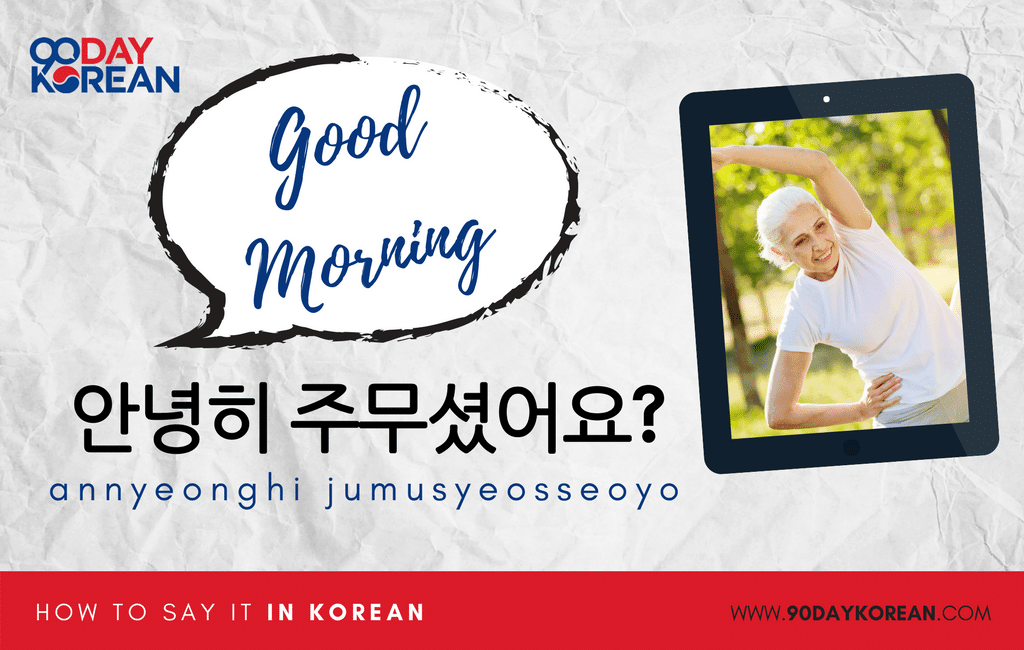
How to Say 'Good Morning' in Korean
(Anyoung haseyo!) is a term for Hello/Good morning/Good afternoon/Good evening. And 안녕! Anyoung! means Hello / Hi (informal). 안녕하십니까 is much respectful than 안녕하세요! but both give the same meaning. Good morning in Korean language The dictionary form of good morning in Korean is 좋은 아침 but it is rarely used in daily life.

How to say "Good Morning" in Korean Learn Korean YouTube
Korean: ·How are you?· Hello 안녕하세요, 여러분, 저는 아나이고요, 저는 워싱턴 디씨에 살아요.[1] Annyeonghaseyo, yeoreobun, jeo-neun Ana-igoyo, jeo-neun Wosingteon Dissi-e sarayo. Hi there! I'm Anna and I live in Washington, D.C.· Good morning Good afternoon Good evening·^ Original English texts from 2016, VOA Learning.
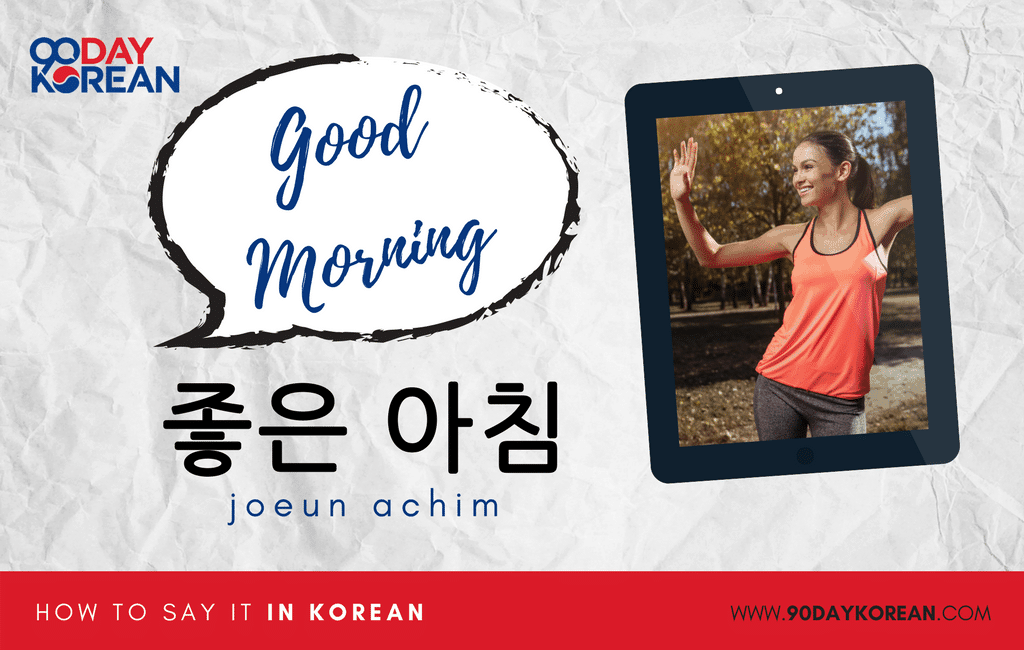
How to Say 'Good Morning' in Korean
Informal "Good Morning" in Korean. When interacting with close friends or peers, informal expressions can be used to say "Good Morning.". Master the Korean alphabet (Hangul) and learn the correct pronunciation of each character. Listen to native Korean speakers and try to imitate their pronunciation, intonation, and rhythm. Repeat.

How to Say Good Morning in Korean 7 Ways to Start Your Day
Both 미안해요 ( mianhaeyo) and 죄송해요 ( joesonghaeyo) are polite ways to say "I'm sorry" in Korean. They're nearly identical in usage and formality, but 죄송해요 ( joesonghaeyo) is a bit more polite. Like the other phrases, you can make this more polite by changing haeyo to habnida, the more formal verb ending.